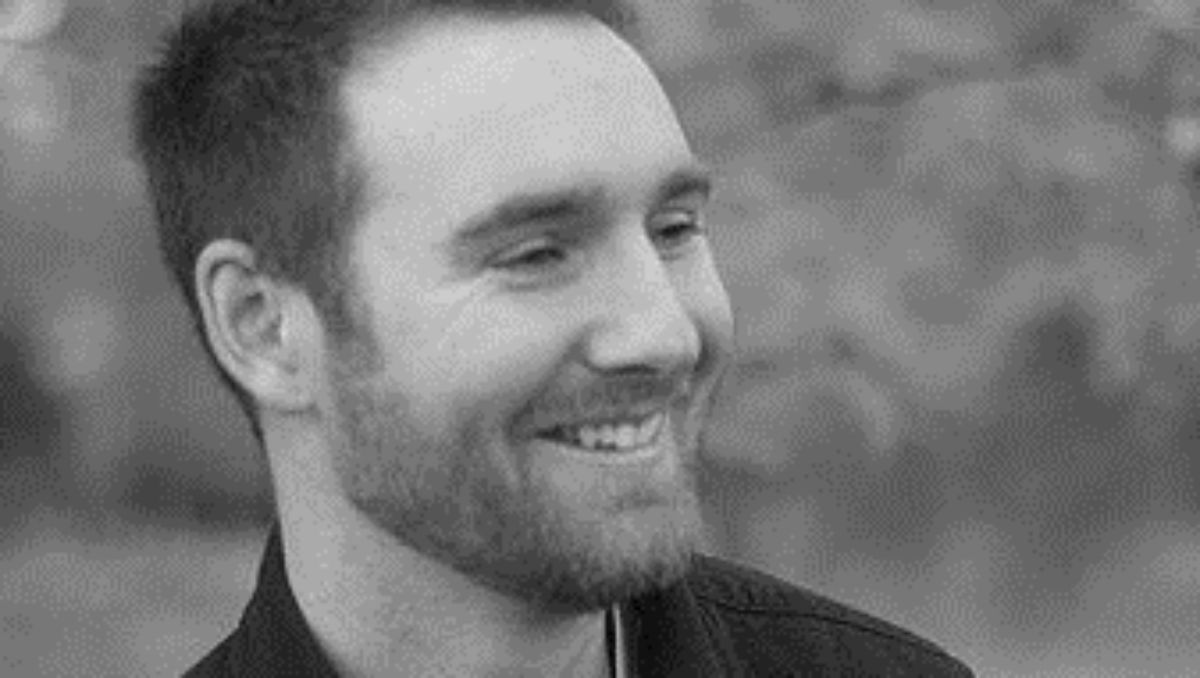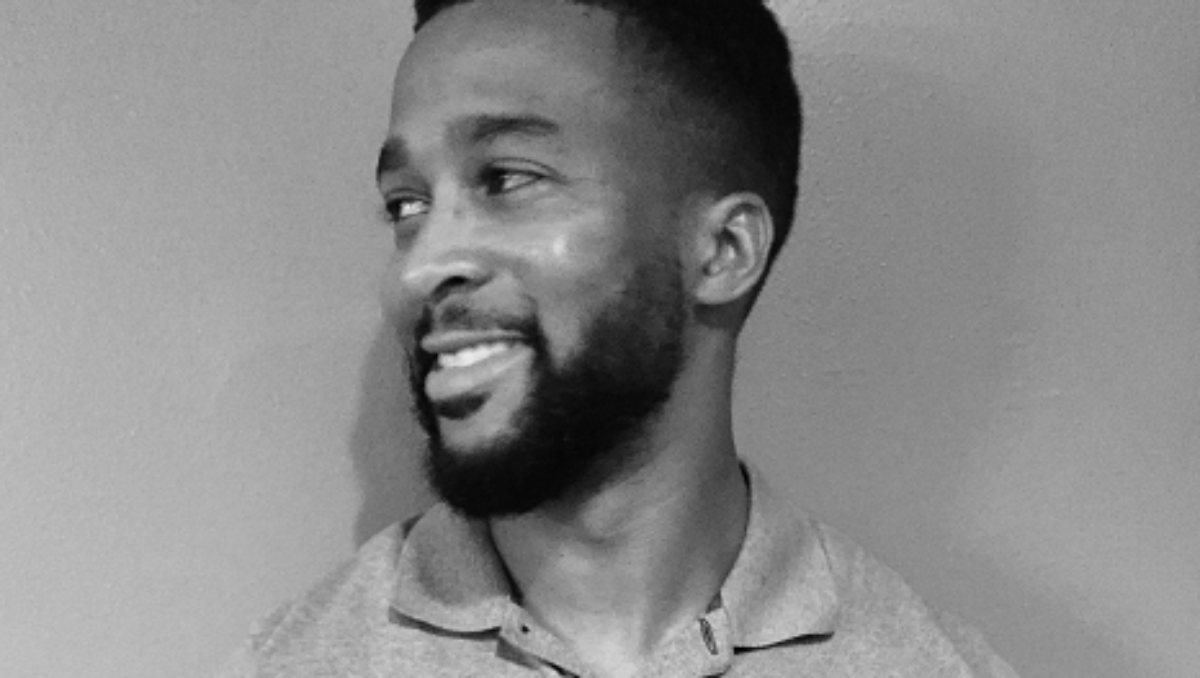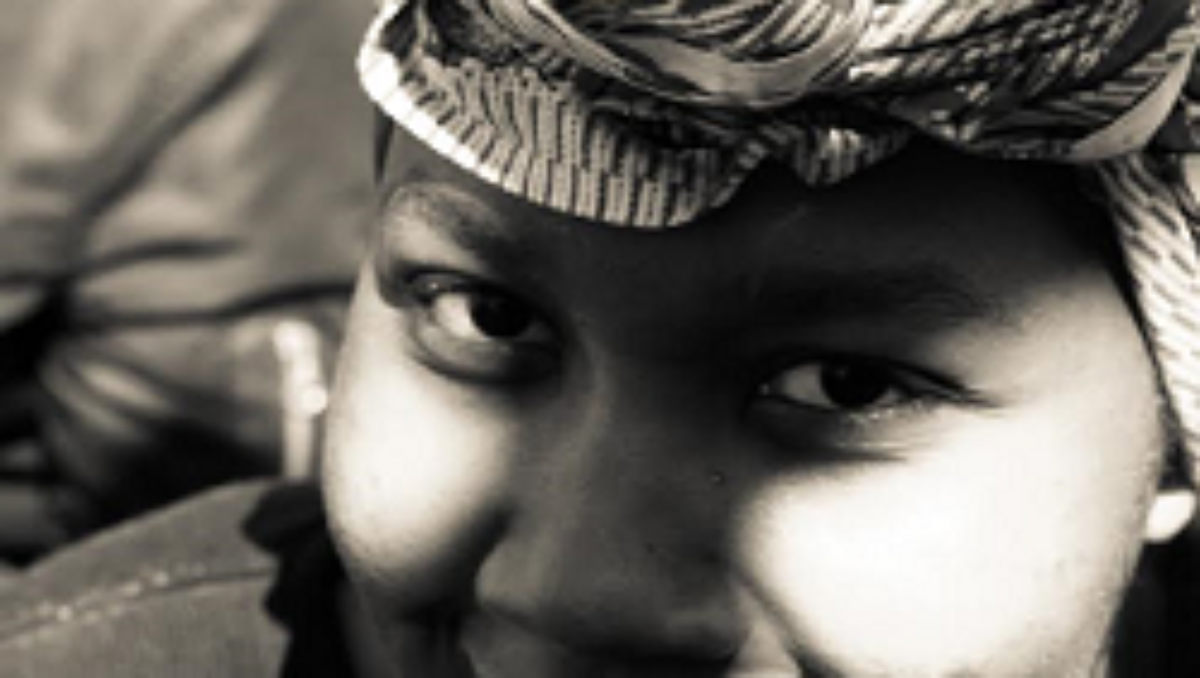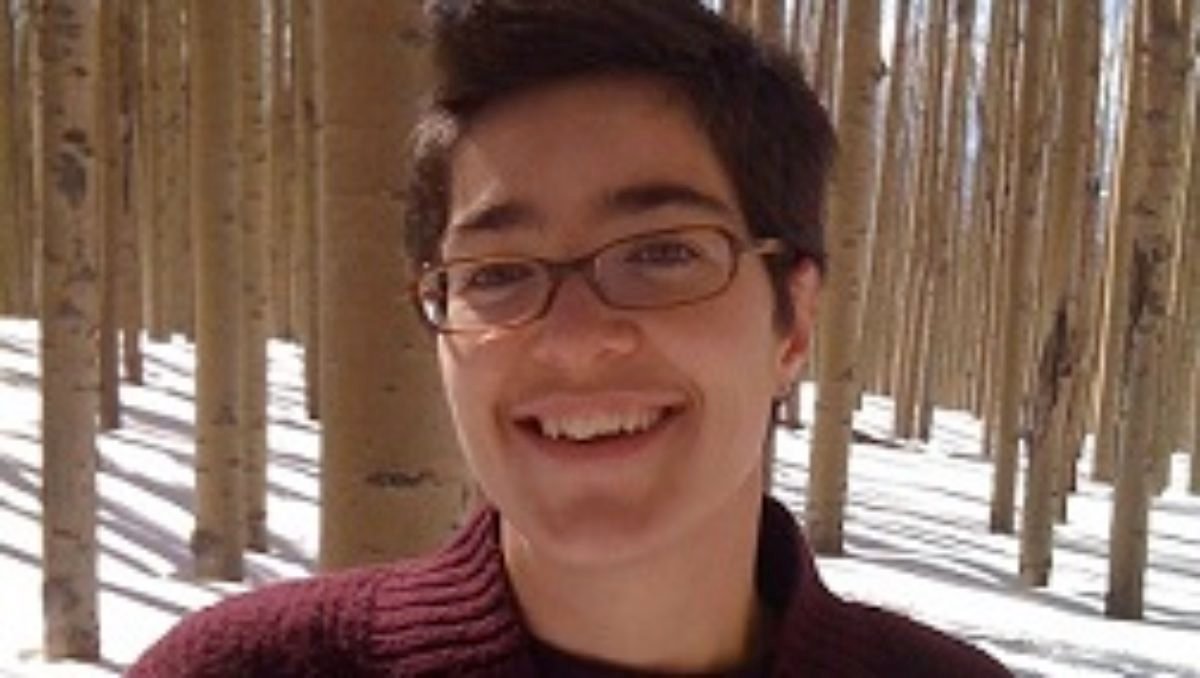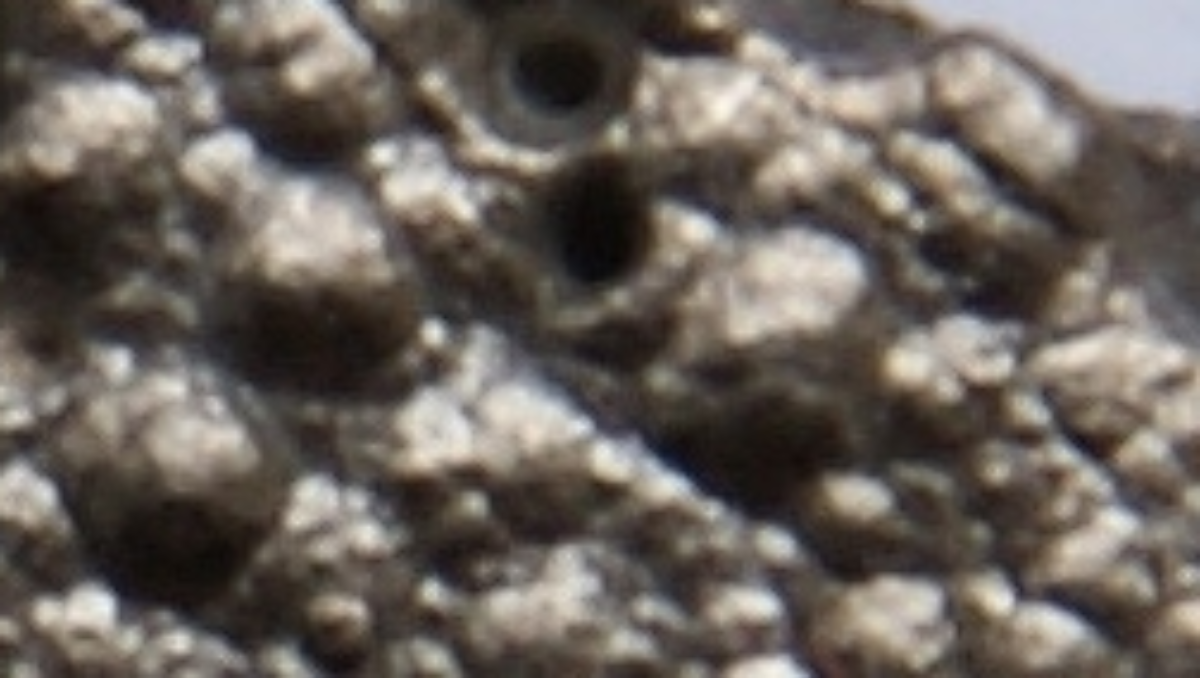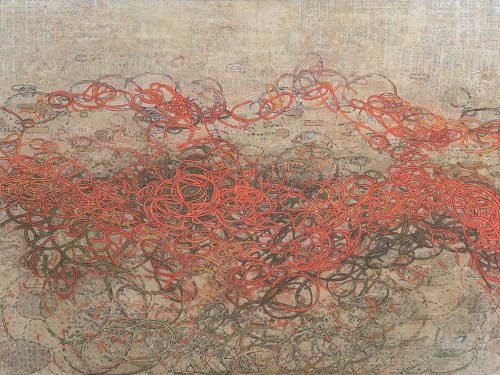ROBIN’S EGG by Keith Leonard
This blue-green robin’s egg
cracked, now, and left
in the porch nest—impossibly
light in my palm. Somehow
the chick knew to press its beak
against the egg’s surrounding walls.
In darkness, it must have followed
sound—the thunder clap,
its mother’s song, the dog—each
driving its first and final fissure
of the shell. But how did it trust
that leaving one world would,
in fact, reveal another? I listen
to the wind and hear
only wind.
- Published in Issue 12, Poetry, Uncategorized
HARPER STEWART by Clemonce Heard
Whoever said black eyes don’t show up
on black guys, need a knuckle mountain
to the mouth. Everything with the exception
of a beatdown stays in Vegas. Who in our
crew of bachelors & back stabbers should’ve
been held over the banister of our Bellagio
suite? A groomsman doesn’t have to sleep
with the bride to deserve the skin caving in
around a pupil, which in itself is nothing
but a cave. Not because a woman can’t bat
what’s already bloated shut should she not
be hit in the face, but because she’s mother
to outrage, who could give birth to fury
at the drop of a velour top hat. My father,
whose best man was his sturdy older brother,
has always said go for the nose, but failed
to explain why. From context I figured if
a bridge is destroyed then all voyages cease,
meaning oxygen cannot commute as usual.
Not the suits we played, but the tuxedos
we wore to your wedding were so stark grey
we could’ve headed to a funeral following
the reception. Inside the stretch limousine
to the strip club we practiced our rapture,
nerve-sweating as if minutes away from
clasping a hand over a fist over a crotch,
as you quivered your vows with a tie chain’s
grin. Ritual unions have got me in trouble
again. If lovers divorce is the wedding party
expected to remain friends with the yolk
that’s been broken? Does the sunset begin
to spill all over the rest of the meal? Brother,
forgive me, for these may be questions
of immunity posed too soon. A widowed
blow withdrawn too late for a target’s pardon.
Or maybe it shouldn’t have been asked at all.
- Published in Issue 12, Poetry, Uncategorized
THEY THINK THEY KNOW AMELIA EARHART, by Julia Kolchinsky Dasbach
where she died—days after a photo
suggested she lived, proved it
as much as paper can prove
anything, as much as a figure
with her hair and approximate
body, sitting on the dock, facing away
from the camera, can look exactly
like a lost dead girl. And far off right,
a barge, floating almost out of frame,
with what may be a plane or just fallen
white wings loosened from flying
too close to the sun above it,
low-hung clouds blurring the matte print
into confession. It must have been
calm on Jaluit Atoll then, the boats refusing
to raise their sails and the past
—a storm, always a storm—
depends on a sharp receding hairline
and prominent nose of the navigator,
his distinct features prove,
“This must be her.” Her
slumped shoulders, her
far-off eyes grazing the steady water
where we can’t see them.
Maybe a woman who reaches
too high has to go
missing, has to be found
without a face, has to be
identified only by the bodies and wings
surrounding her, after all,
how many of us
have been found anyway?
- Published in Issue 12, Uncategorized
TWO POEMS by Ellen C. Bush
ASTIGMATISM
It is my birthday ritual but every year I am surprised
to see my optometrist still alive, seeing me. He must be
past eighty, mustache and skin of a former smoker, stale breath.
I must have so much time left.
I’ve been returning to this chair since I was seven, but have yet
to memorize the chart. The majestic “E” that reassures
all doctors use the same measure
is all I can recall.
Today he begins too many sentences with
As our bodies age
and he is not referring to his own but to mine. The astigmatism
changes, its clever nomenclature once with-the-rule turns
against-the-rule. Fifteen years ago my corneas were footballs
lying on their sides. Now they stand on end.
Which do you prefer: one or two?
One?
Or two.
What should be a snap judgment
to me is anything but.
The lenses click in, click out
and although I can tell they are different, neither seems
better than the other.
One?
Or two.
Are you in a relationship?
One?
Or two.
Do you prefer to be alone?
One?
Or two.
The curvature gets trickier
to measure, requires confirmation
through multiple methods. We must
duplicate the results.
Or perhaps one of us is just
unreliable. He steers out of reach
the suspended mechanical arm
to retrieve a vintage contraption:
thick eight-pound glasses
I must hold up to my face,
like watching opera through a periscope.
He slides lenses in and out of the armory
as my arms tire.
One?
Or two.
Would you like to have children?
One?
Or two.
Which sounds worse to you:
being alone forever
or never being alone again?
One.
Two.
RESOLUTION TO RECOVER LOST THINGS
Whereas the streets have glazed over in a quiet havoc
of black ice and the mail truck
glides sideways into a parked Chevrolet; and
Whereas the skulk of red foxes from the side yard
wood have barked their alarm one night
too many and the litter is one kit too few; and
Whereas the barred owl has flown from the willow oak
where we’d carved our initials and we no longer
know who cooks for whom; and
Whereas the dog stands atop the dining room table, nose thick
with mashed sweet potatoes, teeth wresting the pink
from the ham bone; and
Whereas the tea kettle’s whistle has grown
so weak we miss its whimper until the smoking
copper bottom pierces our nostrils; and
Whereas the child’s mitten hangs snagged
on the chain-link fence in a tangle of red
unthreading, unlooked-for; and
Whereas the bed holds the shape of the body, the cup
clings to the pulp of the orange, the door
swings, and the door swings; therefore
Be it resolved. Therefore the pavement, and therefore
the tires, the steering wheel, the hands upon the wheel;
therefore the fox, the wood beyond the clearing,
the red mitten, and therefore the child;
therefore the owl, the song of the owl, the tree
that held the owl, that holds the symbols
of our names;
therefore the tea and the leaves of the tea
and the kettle, the kettle,
and therefore the food, therefore the service,
the child, the dog, the child,
therefore the bed, and therefore the cup,
and therefore the door at rest.
- Published in Issue 12, Uncategorized
BLACK BALLAD by Afua Ansong
The night I try to kill myself a boy
is shot in the shoulders at the gas
station next to my apartment.
I don’t flinch. I lie
on the rubber of my bed that keeps
the bugs away and stare at the black
poles holding the bunk bed together.
The mice play sought and found
in the shoe closet filled with all size 10’s.
What miracle can I conjure tonight?
I sleep till dawn and the spirit that wants me gone
slaps my eyes to rise: Through the kitchen window,
the dark clouds are yoked with life.
I know the sharp knives in my home
but draw the thin butter knife because
I don’t want a mess for my mother to clean,
I don’t want her to weep as she dips
a rag in Clorox and stains the floor to reverse
its memory. My burial must be neat.
I trace the peak of the blade across the linea
negra on my stomach; the one to appear
only when I am pregnant. I am yet to meet
a man: how do I leave this earth with ease?
- Published in home, Issue 12, Uncategorized
TWO POEMS by Rochelle Hurt
ODE ON MY UPSPEAK
“A lot of these really flamboyant things you hear are cute, and girls are supposed to be cute, but they’re not just using them because they’re girls. They’re using them to achieve some kind of interactional and stylistic end.” – Penny Eckert, New York Times
I admire its belligerent uncertainty, like:
I’ll know if I know when I please. Pointed
indecision as auto-prick that sticks my sentence-tip.
When my tongue spring-toes into a run, I vault
across silences sucking this tick like perpetual mint—
surprised but satisfied. I want all my action
rising, okay? While we’re at it, I dig my umms,
impervious little monks who squat
in well-spaced rows, their insistent vibrato
a hypno-chant that spins my speech to incantation.
I love how they punctuate, bead-like,
my vocal fry, that holey string to which I cling.
Its creak makes me speak like a crumb-scraper
savoring the linen tablecloth. I lick
the conversation down and shake
each glottal rattle at the sky, my diphthong
kernels popping in a thrum that sets me singing
like an optimist—I’ve got nowhere to go but up
to the roof of a high rising terminal.
Oh my voice, you are a wing tethered to a gender
like a brick—or a period—and you jump regardless.
I Want to Walk to McDonald’s Forever, Friend
I want to wade there with you on a snow day,
wheeze-winded & teary. I want to smash the ice
in your lashes, then let the oily steam breathe us
back to running blood. Or I want to walk there
in crop tops we’ll swap in the lime fluorescent
of the slime-tiled john so we can walk home as one
another. I want to wooze in your menthol-cherry
aura as we find every flickering arch in the city.
Delicate licker of grease-dipped French tips,
send me a Rite-Aid valentine that says be my bitch
& I’ll be yours. No take-backs, no joke, no jinx
when I answered that trick crush question with you,
you who then flipped & tramped the whole year solo.
But I swear on my mamaw’s spine we can walk
it all back with Big Macs & a thousand half-hug pats.
Please let’s just meet on the mouth of straw,
suck it up, crush only our cups, & let the year drip down
the sewer slats as we walk back & back & back.
THREE POEMS by Jenny George
DEATH OF A CHILD
This is how a child dies:
little by little. His breath
curdles. His hands
soften, apricots
heavy on their branches.
I can’t explain it.
I can’t explain it.
On the walk back to the car
even the stones in the yards
are burning. Far overhead
in the dead orchard of space
a star explodes
and then collapses
into a black door.
This is the afterlife, but
I’m not dead. I’m just
here in this field.
THE RIVER
The lambs I curled like twins
and lay into their boats. I stuffed their ears
with the wooly sound of sleep.
The pigs I showered with white carnations.
The cows I placed cut branches over, green parasols
fluttering on the stems. All the dead
becalmed in their vessels, sent onto the river.
The river was a murmur of many boats drifting.
Petals in the eddies, creak of prow against stern…
The parade grew large between the banks.
Then there were only boats, boats
and the sound of water beneath them.
REPRIEVE
Before the insects start to grind their million bodies,
before impulse scatters the deer into the trees,
before desire:
there’s a rest.
The dawn and the day observe each other.
The herd begins to move over the field, one shared dream
of grass and wind.
The small stones of their hooves in the stony field.
I’ve exhausted my cruelty.
I’ve arrived at myself again.
The sun builds a slow house inside my house,
touching the stilled curtains, the bottoms of cups
left out on the table.
TWO POEMS by C. Dale Young
FOR ITS BLUE FLICKERING
If you take cobalt as a simple salt
and dissolve it—if you dip a small metal loop
in such a solution and place it in a standard
flame, it burns a brilliant blue,
the flame itself bluer than the richest of skies
in summer. I wanted to be that blue.
And so, I claimed that element as my own,
imagined that fire could make of me
something bluer than the bluest of blues.
But what does an eighteen-year-old boy know
of the blues? All I knew then of cobalt
was its stable isotope. I had no knowledge
of the radioactive one with its gamma rays
used for decades to treat cancer. I had yet
to be exposed to such a thing. I was hot
for cobalt, for its blue flickering. Chemistry
can be such an odd thing. When a teacher of mine
offered up that faggots doused in certain chemicals
burned blue, I saw it as a sign; how can we
not see such things as signs, as omens?
Blue the waters of the Caribbean Sea,
blue the skies over the high deserts,
and blue the passages I found in old Greek texts
that surprised my prudish sense
of what men could do with men. It always
came back to blue. But boyish ideas are just that.
They seem for all the world to be fixed things,
when all they are is merely fleeting. In the end,
my make up was none other than anthracite,
something cold, dark, and difficult to ignite.
It is dense, only semi-lustrous, and hardly
noticeable. One dreams in cobalt, but one lives
in anthracite. Yes, the analogy is that basic.
Anthracite, one of earth’s studies in difficulty:
once lit it burns and burns. Caught somewhere
between ordinary coal and extraordinary graphite,
anthracite surprises when it burns. It isn’t flashy—
it produces a short, blue, and smokeless flame
that reminds one of the heart more than the sky.
PORTRAIT IN AZURE AND TWINE UNRAVELLING
Sometimes what attracts us is nothing more
than a marker of what is wrong with us.
Ravel was heralded as a genius, a master
of Impressionism, for his use of highly repetitive
structures, his rhythmic and repetitive structures.
Who can deny the beauty of Bolero? Not me.
As a child, I asked my mother to listen to me
while I practiced words like cobalt, each one more
and more odd for their sounds, their structures,
something I was still figuring out. “Grant us
Peace,” we repeated at Mass. Everything was repetitive.
And that is how it started, me trying to master
the language, the very words, fearful they would master
me, instead. Azure, sinecure, the long u had me
so early, and then the hard t one finds in repetitive,
substantive, titillation. I always needed more and more
words. Debussy once described Ravel as a man just like us,
one who understands that repetition structures
the way we move through the world, structures
our very breath, breath being that thing necessary to master
song, language, the natural world around us.
The first time I took a lover, she took time to watch me
sitting on the edge of the bed mouthing the word more.
After four hours, she dressed and called me repetitive,
told me the fun of it had ended, had become repetitive.
Memory, even when about something painful, structures
our worlds, structures our hearts and minds and more.
Within years of writing Bolero, Ravel could no longer master
music. He even lost the ability to use language. Imagine me
hearing this story. We were still new to each other, not yet us
but still a me and you. When Ravel left this world, left us,
you told me, many thought him mad and madly repetitive
pouring the same cup of water over and over. “Listen to me,”
you said. “Music is more than the simple structures
one need master.” I chose language instead of music to master,
all 171,000 words in the English language and more.
This morning, you caught me mouthing something other than more.
Ravel was not a man like us. Really. I just needed a new word to master.
My love, I’m repetitive. I sit here saying: “structures, structures, structures.”
TWO POEMS by Caylin Capra-Thomas
TIME SURE FLIES WHEN YOU’RE NOT LIVING UP TO YOUR POTENTIAL
So, everything failed. The jabbed-iron trees flamed out
in spectacular failure along the ragged range. Forecast
failed. The pollster that glistered turned huckster. And
the memory of that ex who called you petit bouchon
failed to reassure that you once loved wreckful and reckless
and in a foreign tongue. All around you now Florida fails pinkly
and by voracious flora. The lizard who burned or drowned
hot-tubbing in your hot coffee failed perfectly, curled into
an eternal question mark, little fingers clenched, dukes up.
If death is the body’s failure, it is also its final fuck you.
Which has to count for something. Which has to be a win.
LIGHTNING SUSPECTED IN DEATHS OF HORSES
I want to take you to the black-mud spring pasture
where six horses fell and did not get back up.
I don’t know if they were dark or dappled—
I wasn’t there. I read it in a newspaper in Vermont,
sitting at the counter of a diner that no longer
exists. Lightning Suspected in Deaths of Horses—
small article in a bottom corner, not much
more information than that. It struck me—
I’m not trying to be funny—I carried
that headline around until it became a slogan
although I’m not sure what I’d been sold.
Maybe this: the sky opens, you kneel
and beg its mercy and it doesn’t make
one lick of difference. Or, light appears
and your life is transformed. Finally getting
exactly what you’ve asked for all along:
a shift in luck, sudden brilliance, your body
lit, electric, your own enough to let it go.
EXCAVATING by Tingyu Liu
Not-knowing, the last of the last times slipped past
us like small ships—no memory of the last
hand within hand, the last curving against
curve, the last naming, the last receptor clasping
and unclasping—the last trace
of us traveling from spine to mind, axons
to dendrites—a relay of loss.
If we took every fish and scattered them equidistant
across the waters, there’d be less than one
minnow for every Olympic-sized swimming pool of sea.
There are many ways to describe loneliness. There are not
enough ways for light to travel through water.
There are approximately three million wrecks
beneath the seas. Imagine if a ship knew it’d be her last
sail, how deliberately she would’ve gripped
the salt winds, how tentative her bow,
how, peering within, she’d marvel at all that shine
and shining—all that light inside of her,
all those seafarers calling her name.
Once, we learned that humans know more about the surface
of Mars than the seabed. If we were anything
together, we were cosmologists—how much easier
it is to look up, where space can’t
flood out the planets, not even the ones light-years
away. Once, I told you that if I could be anything,
I’d be diving, I’d be a trace against the seafloor, tendering.
Note: The poet would like to thank the writer of the article “If the Ocean Was Transparent: The See-Through Sea” for the scientific facts that inspired this poem.
[DEAR BEAR] by Ae Hee Lee
Dear Bear,
don’t be shy. I know you have been watching me as you would a salmon tailing up the river—I
recognize that white glint in your eye. Don’t hide—come closer to me with your awkward,
lovely gait, and nuzzle my ears with a low growl; come and feel slowly, with your sharp bear
claw, a woman’s tender spine reverberate. It is all right, I like you warm-blooded. I’m sure such
gentle heat can’t compare to any winter coat. So stir before solitude floods your skin and don’t
go hibernating, leaving me awake, searching for your
stars at the sea,
(I see you don’t dare hug my shoulders. You fear denting bone, but you underestimate me.
Underneath this spring dress dappled with grass sap, I keep a thousand layers of skin petals, and
over it, an amphibian film of toxic spit. Though surely, if handled well, medicinal—like
everything else in this world. Press your finger-claw through my hand, convince yourself that
I’m not made of glass—see how we are both omnivores of rugged meat. No need to hold back
any truth,)
